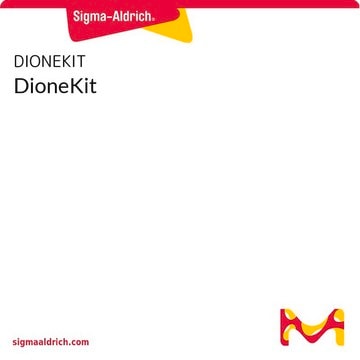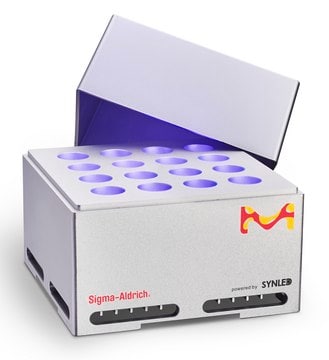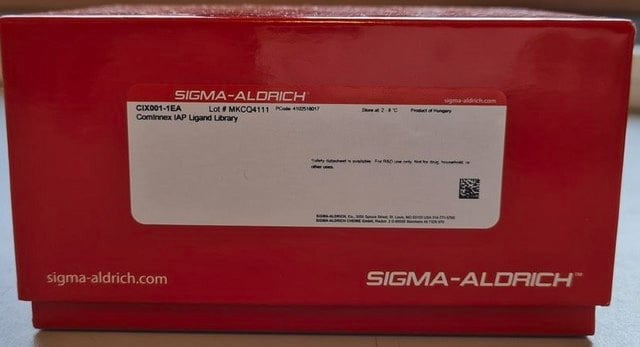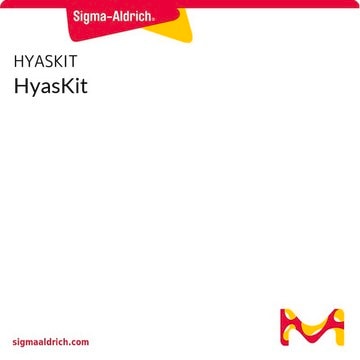ATLASKIT
AtlasKit
Synonyma:
Antibody-photocatalyst conjugate labeling, Microenvironment mapping technology, Photoinduced proximity labeling kit, Protein-protein interaction elucidation technology
About This Item
Doporučené produkty
storage temp.
−20°C
General description
The kit provides a step-by-step procedure for conjugating your antibody to a photocatalyst that localizes light-mediated crosslinking to the antibody′s target and surrounding proteins. First, an azide-containing linker is appended to your antibody that ″clicks″ on an iridium photocatalyst. The resulting antibody-photocatalyst conjugate is added to live cells along with a biotinylated diazirine reagent. Analogous to a satelite, the photocatalyst localizes carbene generation from the diazirine and thus covalently modifies surrounding proteins. The biotin tag allows for enrichment of photo-labeled proteins. As shown in Geri et al., the extent of this photo-induced labeling is within a 4 nm radius of the photocatalyst, providing advanced precision for mapping protein interaction networks.
Read more about micromapping in our Technology Spotlight
Protocol available here
Included:
- Conjugation reagents and buffers, photocatalyst, photo-reactive diazirine-biotin, fluorescent standard for validation
Not included:
- Antibodies (primary, secondary, isotype)
- Light-irradiating photoreactor (suggestions below)
- Protein concentration assay (BCA assay recommended)
- Plate reader
- Spin desalting columns (7K MWCO, 2 mL recommended)
Photoreactors commercially available:
Application
Biochem/physiol Actions
Storage Class
10 - Combustible liquids
Osvědčení o analýze (COA)
Vyhledejte osvědčení Osvědčení o analýze (COA) zadáním čísla šarže/dávky těchto produktů. Čísla šarže a dávky lze nalézt na štítku produktu za slovy „Lot“ nebo „Batch“.
Již tento produkt vlastníte?
Dokumenty související s produkty, které jste v minulosti zakoupili, byly za účelem usnadnění shromážděny ve vaší Knihovně dokumentů.
Sortimentní položky
Novel method tags antibodies with photoreactive iridium for membrane protein labeling.
In cases where photoaffinity labeling (PAL) probes are ineffective, Hyas and Dione Kits provide an effective method for small molecule identification by using an Iridium photocatalyst tethered to the molecule under investigation.
Náš tým vědeckých pracovníků má zkušenosti ve všech oblastech výzkumu, včetně přírodních věd, materiálových věd, chemické syntézy, chromatografie, analytiky a mnoha dalších..
Obraťte se na technický servis.








